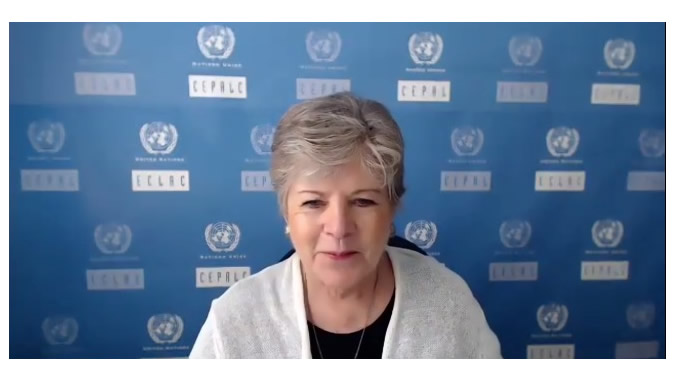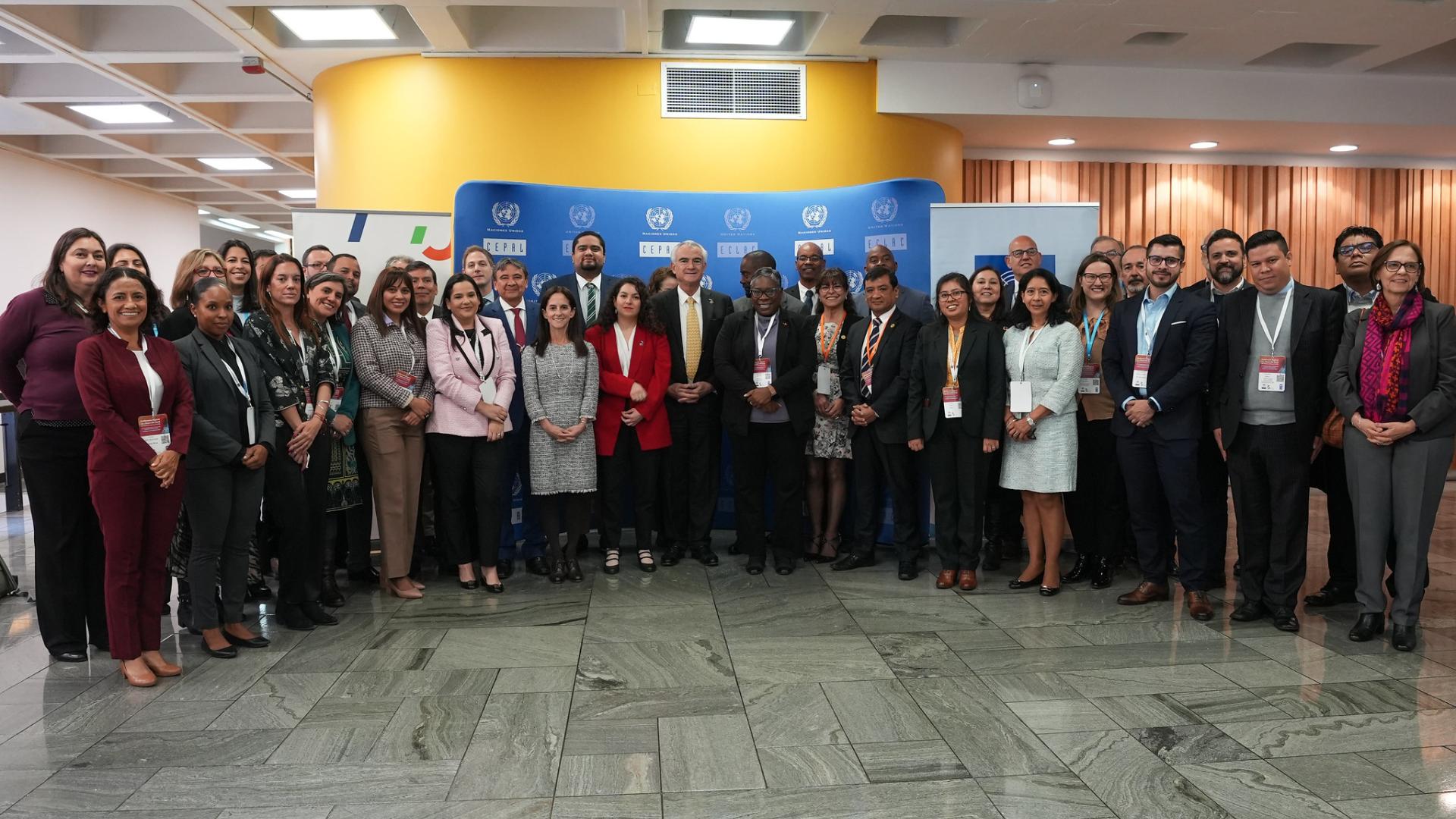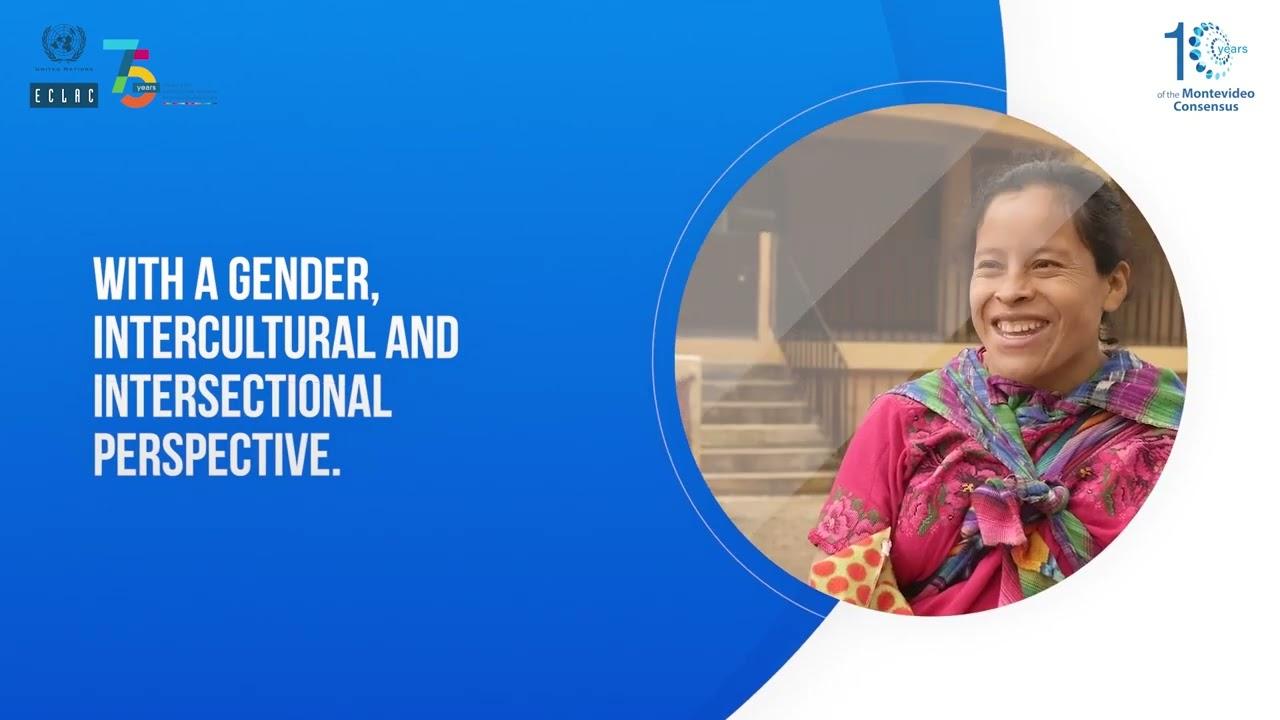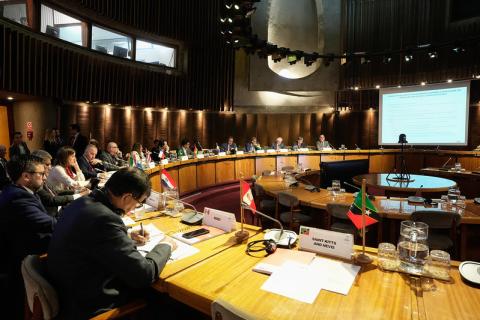Briefing note
“The current health and climate crises are the result of an unsustainable development model. Both are global public ills. They arise from the destruction of nature and require collective, simultaneous action along with international cooperation,” underscored Alicia Bárcena, Executive Secretary of the Economic Commission for Latin America and the Caribbean (ECLAC), during a virtual keynote lecture organized by the Oxford University International Development Department (United Kingdom).
The current development model, explained Bárcena, is associated with, among other things, a falling rate of production and trade growth, as well as decoupling from the financial system; higher inequality and persistence of a culture of privilege; large negative externalities, as well as carbon emissions; and systemic vulnerabilities that have been laid bare by the COVID-19 pandemic.
In this context, “the response to the pandemic is an opportunity to move toward a big push for sustainability,” reaffirmed the ECLAC high official during her presentation, “The Climate Emergency in Latin America and the Caribbean: Threats and Opportunities for Sustainable Development,” with introductory remarks by Diego Sánchez-Ancochea, Head of Oxford University’s International Development Department, and Laura Rival, of the same university.
Sánchez-Ancochea highlighted the important role that ECLAC has played in the theoretical debate and development of policies, as well as the organization’s recent contribution to the study of environmental issues and inequality.
During her presentation, the Executive Secretary shared some of the proposals contained in ECLAC’s latest position paper, Building a New Future: Transformative Recovery with Sustainability and Equality.
That document presents the three-gap model to provide an analytical perspective encompassing the issues of equality, environment and the closing of productive and technological gaps. Based on this perspective, it is estimated that Latin America and the Caribbean must grow by a rate of at least 4% per year and undertake a strong redistribution of income (at least 3% of annual GDP) to eliminate poverty by 2030. The study also suggests that if the region transitions toward renewable energies, it could reduce its emissions by 30% and create around 7 million new jobs.
ECLAC, pointed out Bárcena, proposes focusing on seven sectors that could lead the big push for sustainability. These are linked to a new energy matrix, urban electromobility, the digital revolution, the healthcare manufacturing industry, the bioeconomy, the circular economy and sustainable tourism. This approach highlights the tradition of a push for development based on the construction of a welfare state, the protection of nature and capacity-building for sustainable structural change.
The high-level representative also reiterated ECLAC’s proposals to connect the emergency to post-pandemic recovery, including the production and joint distribution of COVID-19 vaccines; the extension of basic emergency income for the population living in poverty; the expansion of terms and grace periods for loans granted to micro, small and medium-sized enterprises (MSMEs); the creation of basic digital basket; the implementation of expansionary fiscal and monetary policies; the development of recovery plans based on investment, job creation and environmental sustainability; and the construction of political compacts aimed at universal health and social protection systems.
Regional integration and international support on a multilateral basis must be part of the response to overcome the crisis and change the development style, said Bárcena. We must have international solidarity to relieve debt in the Caribbean and interest payments in Central America, for which concrete plans exist, she emphasized, such as the Fund to Alleviate COVID-19 Economics – FACE, proposed by the Government of Costa Rica, and the resilience fund for financing the adaptation to climate change in the Caribbean promoted by ECLAC. “Adaptation can produce significant benefits but continues to lack financing,” she underlined.
The Executive Secretary emphasized that Latin America and the Caribbean is among the regions that contribute the least to the global emissions that cause climate change. Nevertheless, the region, particularly the Caribbean and Central America, is among the most affected by this phenomenon.
“We need to build a new development model aligned with the 2030 Agenda for Sustainable Development. We must move toward a welfare state. At least our region cannot face another crisis with the existing levels of fragmentation when it comes to social security and health services. This requires changing the conversation between the State, the market and society. We have to recover politics and political participation. We need institutions and coalitions capable of formulating and implementing policies at the global, region, national and local levels,” she concluded.



